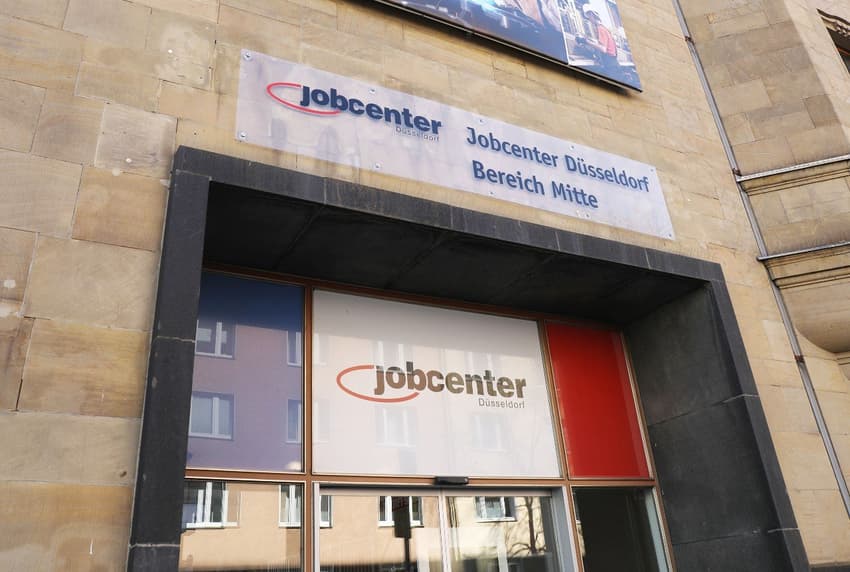German Labour Minister floats new sanctions for 'uncooperative' jobseekers

Under new proposals from German Labour Minister Hubertus Heil (SPD), unemployed people who refuse to accept jobs will see their benefits scrapped for up to two months.
Speaking on ARD on Thursday, the SPD politician said people who were uncooperative and who "willfully refuse to take up reasonable work" would face much tougher consequences in future.
Heil's plans, which haven't yet been approved in cabinet, are part of an attempt to find €1.5 billion of savings out of Germany's social welfare budget in the coming year.
Following a budget crisis that left the government racing to fill a €60 billion black hole in the finances for 2023 and 2024, senior ministers pledged to cut spending on unemployment benefits while still increasing the Bürgergeld allowance at the start of 2024.
From January 1st, 2024, the monthly allowance for a single-person household will rise from €502 to €563. This is the money that jobseekers receive for living costs outside of their rent and energy bills.
If the plans go through, people receiving unemployment benefits could lose this allowance for a full two months if they turn down jobs they are offered without providing a good reason.
READ ALSO: Germany's monthly unemployment benefit to rise by 12 percent
During this time, the government would continue to pay their housing costs.

Labour Minister Hubertus Heil unveils the Bürgergeld plans at a press conference in Berlin. Photo: picture alliance/dpa | Christoph Soeder
Welfare reform
The news of tougher sanctions for benefits claimants was welcomed by Finance Minister Christian Lindner (FDP), who said the move would strengthen public trust in the welfare system.
Taxpayers expect people on long-term unemployment benefits to also do their bit to find a job, he added.
The FDP and the opposition CDU have long been critical of the new Bürgergeld system, arguing that full-time work should be more attractive than welfare payments.
Introduced by the SPD-led coalition in 2022, Bürgergeld is the replacement to the former controversial Hartz IV unemployment benefits. Instead of sanctioning bad behaviour, Bürgergeld offers incentives for further training and work experience and permits people to keep more of their savings and any part-time earnings than before.
READ ALSO: What to know about Germany's unemployment benefits shake-up
Speaking to DPA on Friday, Lindner called on the Labour Ministry to look at the current welfare system in more detail to see if more reforms were required.
"The system of our social benefits must be scrutinised to ensure that work is always more worthwhile than not having a job," he said.
Comments
See Also
Speaking on ARD on Thursday, the SPD politician said people who were uncooperative and who "willfully refuse to take up reasonable work" would face much tougher consequences in future.
Heil's plans, which haven't yet been approved in cabinet, are part of an attempt to find €1.5 billion of savings out of Germany's social welfare budget in the coming year.
Following a budget crisis that left the government racing to fill a €60 billion black hole in the finances for 2023 and 2024, senior ministers pledged to cut spending on unemployment benefits while still increasing the Bürgergeld allowance at the start of 2024.
From January 1st, 2024, the monthly allowance for a single-person household will rise from €502 to €563. This is the money that jobseekers receive for living costs outside of their rent and energy bills.
If the plans go through, people receiving unemployment benefits could lose this allowance for a full two months if they turn down jobs they are offered without providing a good reason.
READ ALSO: Germany's monthly unemployment benefit to rise by 12 percent
During this time, the government would continue to pay their housing costs.

Welfare reform
The news of tougher sanctions for benefits claimants was welcomed by Finance Minister Christian Lindner (FDP), who said the move would strengthen public trust in the welfare system.
Taxpayers expect people on long-term unemployment benefits to also do their bit to find a job, he added.
The FDP and the opposition CDU have long been critical of the new Bürgergeld system, arguing that full-time work should be more attractive than welfare payments.
Introduced by the SPD-led coalition in 2022, Bürgergeld is the replacement to the former controversial Hartz IV unemployment benefits. Instead of sanctioning bad behaviour, Bürgergeld offers incentives for further training and work experience and permits people to keep more of their savings and any part-time earnings than before.
READ ALSO: What to know about Germany's unemployment benefits shake-up
Speaking to DPA on Friday, Lindner called on the Labour Ministry to look at the current welfare system in more detail to see if more reforms were required.
"The system of our social benefits must be scrutinised to ensure that work is always more worthwhile than not having a job," he said.
Join the conversation in our comments section below. Share your own views and experience and if you have a question or suggestion for our journalists then email us at [email protected].
Please keep comments civil, constructive and on topic – and make sure to read our terms of use before getting involved.
Please log in here to leave a comment.